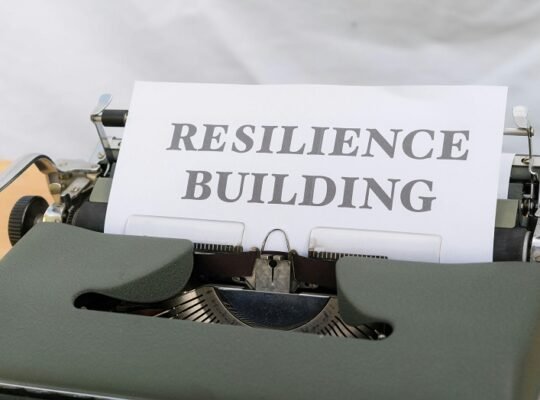The simple daily changes that will lead to longevity
Chronic diseases are a leading cause of death worldwide, and they’re often influenced by lifestyle and genetics. Fortunately, we have the power to change our habits. These are the eight practices that can notably extend your lifespan.
Richard Smith-Bernal, founder of The Juice Smith, offers practical advice on embracing these habits, revealing that achieving a long and healthy life might be simpler than you previously believed.
What Are The Eight Habits?
A study from the American Society of Nutrition released last year highlighted the habits that dramatically correlated with longevity. Adopting the following eight habits from the day you turn forty can increase your lifespan by twenty-four years for men and twenty-one years for women:
-
Not abusing opioids
-
Not smoking tobacco (including vaping)
-
No alcoholism or regular binge drinking
-
Having positive social relationships
-
Eating a healthy diet
-
Sleeping well
-
Getting regular physical exercise
Some may seem obvious, but many of these items are life-long habits that can be hard to develop and stick to. So, how do you begin to actually implement them? Richard breaks down ways to start a positive relationship with healthy habits.
-
Diet
Maintaining a healthy diet is about finding balance. Instead of focusing on restriction, shift your mindset towards adding more nutritious foods. Start by incorporating an additional vegetable into your daily meals this week. Then, gradually introduce a new type of seed or nut the following week. After that, incorporate another superfood fruit into your diet.
‘Remember, it’s okay to indulge occasionally, so don’t be too hard on yourself if you slip up,’ notes Richard. ‘The key is to strive for balance and consistency in your eating habits.’
-
Sleep
Getting quality sleep can be challenging, especially when balancing work, social activities, and other commitments. Rather than focusing solely on going to bed earlier, prioritize improving the quality of your sleep with the time you have. Establishing a winding down routine can help you gradually transition away from technology as bedtime approaches.
‘By reducing your exposure to blue light and minimizing stimulation, your body can naturally ease into a state of drowsiness earlier, leading to a more restful and rejuvenating sleep,’ says Richard.
-
Exercise
Incorporating regular physical exercise into your life can significantly boost your chances of living longer and healthier. The trick is to discover activities that you genuinely enjoy. Instead of investing in a gym membership that you might never use because you dislike exercise machines, explore other options. Perhaps you find joy in rock climbing or participating in a local sports league. If you’re a fan of audiobooks or podcasts, why not combine your exercise routine with a leisurely walk or run around your neighborhood while catching up on your favorite listens?
‘By finding activities that bring you pleasure, you’ll be more likely to stick with them,’ says Richard.
-
Not Abusing Opioids
This one may seem obvious or completely avoidable, but with opioid epidemics sweeping through communities over the past decade, it’s becoming more challenging to avoid. In fact, most who get swept up in an opioid addiction initially start on benign prescribed opioid-based painkillers for medical reasons.
Fifty million people were prescribed opioids last year in the UK alone. The opioid death rate increased more than ten times in the last ten years in the USA, and similar increases occurred in the UK and Canada.
Don’t take any prescription from your doctor lightly. Talk with your doctor about the risks of opioids and find a plan that balances your need for pain relief with the dangers at hand. And if you find yourself having a hard time getting off the prescription, seek help – the earlier, the better.
-
Avoiding Alcoholism And Binge Drinking
Avoiding binge drinking is crucial for maintaining a healthy lifestyle. Binge drinking simply means consuming enough alcohol to get drunk, which can vary depending on factors like body type. For instance, the UK government defines binge drinking as six drinks for women and eight drinks for men. In the United States, it’s typically considered four drinks over two hours for women and five for men.
Fortunately, it’s more manageable than it sounds. Finding alternative ways to socialize without relying on alcohol is key. Explore alcohol-free drinks and cocktails, and consider bringing your own fancy juice to parties. Staying hydrated is also essential.
‘With alcohol being such a prominent part of our culture, many underestimate the strong connection it has to chronic disease,’ says Richard. ‘It’s never too late to reevaluate your relationship with alcohol.’
-
Avoiding Tobacco
The health community has been in agreement for decades about the dangers of smoking. But with the emergence of e-cigarettes or vapes, there’s a new way of smoking that has been marketed as “safer” than traditional cigarettes. However, many vapes still contain tobacco and other harmful chemicals that you inhale directly into your lungs. ‘E-cigarettes are not the solution to a smoking problem,’ says Richard. ‘Talk to a doctor about other ways to ease off of a nicotine addiction that don’t include harming your lungs.’
-
Positive Social Relationships
Building and maintaining positive social relationships throughout life is crucial for our well-being. Recently, the United States Surgeon General raised concern about a “loneliness epidemic,” which became even more pronounced during the Covid-19 pandemic. Loneliness can have severe consequences for both physical and mental health, including increased stress, depression, and even a higher risk of certain chronic illnesses.
Fortunately, there are many ways to combat loneliness and cultivate meaningful connections with others. One option is volunteering your time and skills to help others in your community. Volunteering not only allows you to make a positive impact but also provides opportunities to meet like-minded individuals who share your interests and values. You can also discover other social activities in your community, such as local sports leagues or art classes.
Technology can also be a valuable tool for finding and maintaining social connections. Online resources such as meetup groups and social networking platforms provide opportunities to connect with people who share your interests or hobbies. Additionally, there are now apps specifically designed to help individuals find platonic friendships, functioning similarly to dating apps but focused on fostering non-romantic relationships.
-
Managing Stress
Managing stress is essential for maintaining good health, as constant stress can strain the body and increase your risk of disease. The good news is that many habits that promote overall well-being are also great for reducing stress. Healthy eating, regular exercise, positive social interactions, and getting enough sleep are all critical components of stress management. By adopting these habits, you’re improving your health and actively reducing stress levels in both your mind and body.
‘Think of it as a two-in-one package,’ says Richard. ‘Each positive habit you incorporate contributes to both your overall well-being and your ability to cope with stress.’
The Power Of One
Another key finding of the study is that adopting just one of these habits can increase your lifespan. Earlier is better, but adopting just one of these habits in your 40s, 50s, 60s, or even in your 90s makes a difference.
‘It’s never too late to make a positive change in your health,’ says Richard. ‘Give yourself grace and ease into positive habits over time.’






